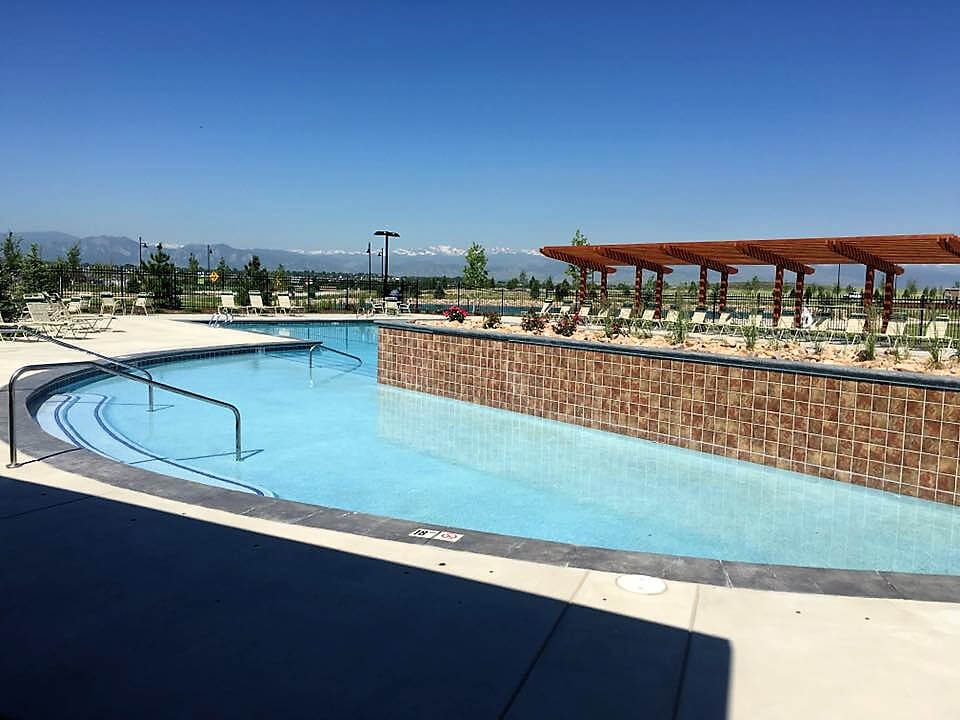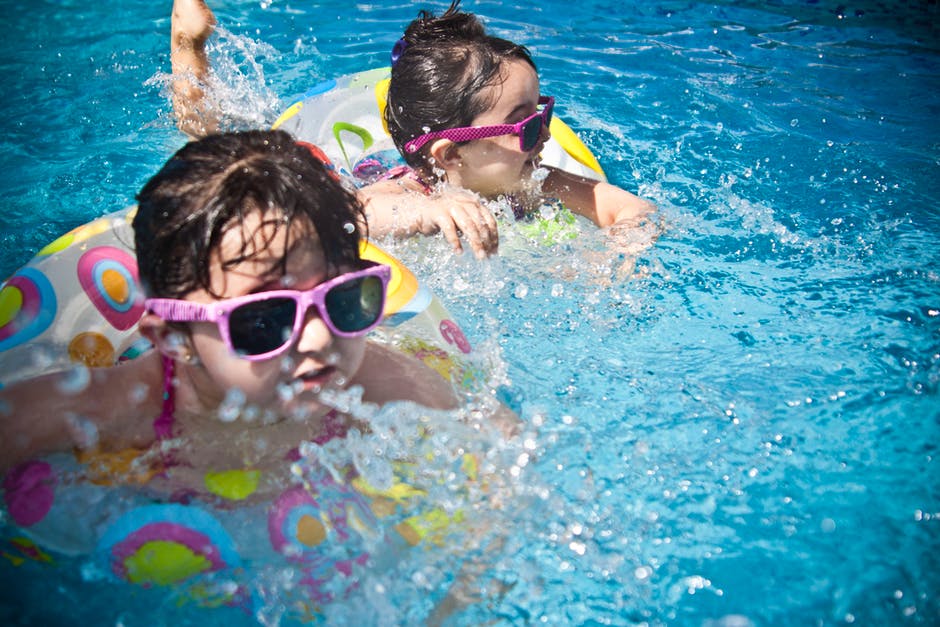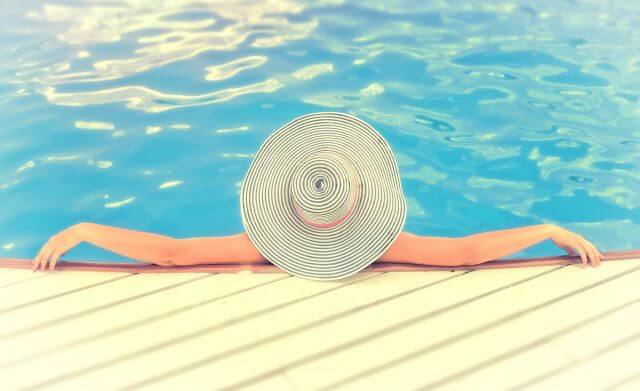How to Hire the Best Pool Builder Near Denver, Colorado
October 17, 2022by Content ManagerBuildPOOL AND SPA
When hiring pool builders in Denver, Colorado, there are many aspects to consider. Building a pool is a task for professionals. A professional pool builder near Denver can design, install and maintain your custom pool in an efficient and budget-friendly way. Pool builders first help you design your custom pool to match your vision. You can build different styles of pools to enhance your property based on details such as the characteristics of your landscape and the primary use of your custom pool.
In addition, professional pool builders will take care of every aspect of building a custom pool. This can include design details, choosing materials and incorporating features to enhance your space, to acquiring permits needed to complete the construction. Complying with all state and city regulations is critical when building a pool in your yard. Moreover, a pool builder near Littleton, like Wetworks Pool and Spa, offers you a year-round maintenance package to keep your custom pool in pristine condition for years to come. Let us dive into how to find the best pool builders in Denver, Colorado, and the essential questions to ask when you hire a professional pool builder near Littleton.
How to Hire a Custom Pool Builder Near Littleton, Colorado
Read Pool Builders Reviews, Verify References
Reading reviews of different pool builders near Littleton, CO, can help you determine which pool builder is right for you. Reviews are a reference to someone’s experience of working with the company. You can decide if a company is right for you by the content in the reviews. Checking reviews for a pool builder near Denver is a great way to choose a few companies to get estimates.
Engage with a licensed pool builder near Denver who has passed the necessary background checks, which may include verifying references. Speaking with others who have previously used a potential pool contractor may yield valuable details about their performance, timeliness in finishing the task, quality of the work, condition of the tools and equipment utilized, price, and more. Once you have narrowed your list of possible pool businesses to three to five, you can set aside some time to make the calls and collect the data you will need to make your informed choice. A fast reference call usually only takes a few minutes.
Share Your Dream Custom Pool Vision with a Pool Builder near Denver
First, contact a professional pool builder near Denver to hire a contractor. Many experienced pool builders offer free estimates. Make an appointment and ask the contractor to outline all the steps of building your custom pool. Some topics to discuss may include: how any needed excavating work will be performed, how to prepare the site, what equipment will be required for the pool installation, pool design, a timeframe to complete the project, what permits are necessary before commencing construction, and the cost of building your custom pool. A professional pool builder in Littleton will have answers to all of these questions and will also provide you with a detailed estimate or proposal for your custom pool construction.
When you decide to install a pool in your Denver property, experts recommend you speak with multiple professional pool builders. Speaking with different companies will allow you to get numerous estimates. Hearing various construction and design plans can help you determine which custom pool contractor will best bring your dream pool area to life. Plus, you can conduct a competitive price analysis to find a provider that provides a high level of service at a cost within your budget.
Ask Your Pool Builders for their Licenses and Proof of Insurance
When installing a swimming pool, you should always select certified and insured pool builders. If something goes wrong with the project and the company you hired is not adequately licensed or insured, you could be held responsible- including any worker accidents.
If you are searching for a pool builder near Littleton, Colorado, consider WetWorks Pool and Spa. With over 20 years of experience as pool builders in the Denver metro area, you can rest easy knowing we are properly certified, licensed, and insured for any custom pool construction.
Talk About Custom Pool Construction Payment
To keep you and the contractor pleased and, more importantly, to keep the job moving smoothly and steadily, talk honestly and openly about the expected pricing schedule. Discuss to understand the payment structure for your custom pool. Ask to include any additional expenditures that may be necessary for your estimate. Other expenses include plumbing, landscaping, material removal, supplies, tiling, and more.
You typically need to make a down payment before work on your pool construction begins, a standard industry practice. Before you make a payment, make sure that you and your contractor agree on the total fees for completing the work in a time frame you agree with.
Be careful to ask whether there will be additional expenses and what they would look like if work takes longer than expected to finish due to unanticipated factors like weather delays or worldwide pandemics. It is always good to understand the different paths a project can take, and it can help you plan and budget during your custom pool construction near Littleton, Colorado.
Ask Yourself, Are the Pool Builders Capable of Constructing Your Unique Pool Vision?
Many custom pool concepts near Littleton, Colorado, include intricate landscaping or call for incorporation into your existing environment to avoid disrupting the current ecosystem of your yard. Professional pool builders in the foothills of the Rocky Mountains must have specific knowledge to bring your at-home custom pool vision to life.
WetWorks Pool and Spa have brought countless custom pool visions to life in our over two decades as a pool builder near Denver. Passion for creating a space for you to relax, host friends, enjoy family, and make memories fuels our creative collaborations.
Pool Builder Near Littleton FAQs
What is the Cost of Building a Pool in Littleton, CO?
The cost of hiring a custom in-ground pool builder near Denver is between $30,000 and $60,000. Above-ground pools can be substantially less expensive. However, a fully customized above-ground pool installation may cost $100,000 or more. Ultimately, the cost of building your custom pool will depend on the details you decide you during the design process.
Pool builders will base the estimated cost starting with the size and shape of your custom pool. Your pool style and material type choices will also significantly impact the price. Vinyl and fiberglass are prefabricated pool liners that are laid over the steel pool structure and are less expensive materials. The pool cost can be substantially lower with these liners than with concrete or gunite pools, albeit you will need to renew them in time. Although installing concrete and gunite pools can be more costly, they last much longer. Design details such as ornamental tiling may increase the price.
The cost of installing a pool includes excavation in large proportion. The typical excavation price is $900 on average, but the final cost will depend on variables like your yard’s slope, the soil type, labor cost in your location, and how far you are from the closest landfill that accepts dirt. The final price will also depend on the filter and pump you choose.
Check local ordinances to establish details needed to comply, such as building a fence or upgrading your current fencing for safety. Accessories like pool covers, waterfalls, and pool decks will add to the cost. WetWorks Pool and Spa is ready to create your dream backyard, from the custom pool to the outdoor grilling pool deck.
What is the Best Time of Year to Build a Pool?
Pool construction in the fall or winter may have cheaper pricing, give your yard more time to recover, and could qualify for tax deductions. A spring installation offers less time spent staring at the pool without being able to swim in it. Colorado weather can be unpredictable during these seasons, so speak with a pool builder near Denver to find the best time to schedule construction for your custom pool.
Does a Pool Bring Additional Value to a House?
Under ideal circumstances, an in-ground pool can improve your property’s value by about 7%. A pool may increase the value of your property by anywhere from $10k to 70k, depending on the area and market.
How Much Time does it take to Build a Pool?
Building a pool involves several processes. A skilled pool builder near Littleton, like WetWorks Pool and Spa, can keep things going by streamlining the procedure. The design phase takes one to four weeks to complete. It is crucial to take your time throughout this process to avoid making a costly error. Permits, excavation, and installation may take around eight weeks. Depending on the intricacy of the design process, the materials you choose, and the extras you put on, your experience may differ slightly, but 8 to 12 weeks is a reliable estimate.
Pool Builder Near Denver, Colorado
WetWorks Pool and Spa is your local, family-owned pool builder near Littleton, Colorado. For more than twenty years, our family has been creating spaces for neighboring families across our communities to make cherished memories. Reach out to begin building your custom pool today!





